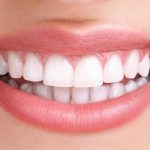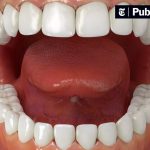Say Goodbye to Tartar: Easy Ways to Remove Tartar from Toddler Teeth at Home Without a Dentist
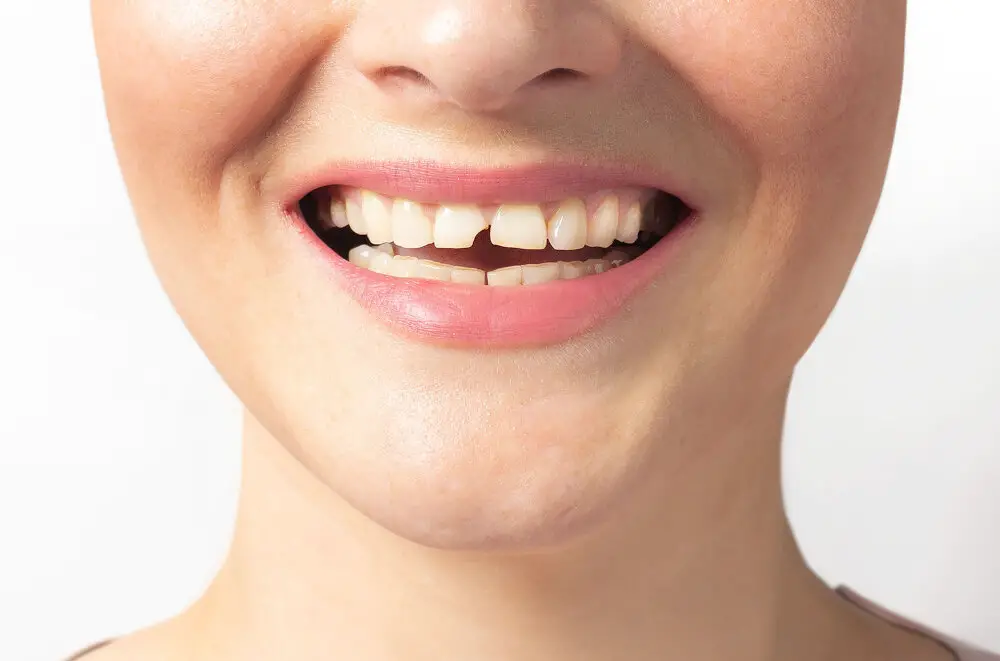
Good oral hygiene habits are crucial to maintaining healthy teeth and gums, especially for toddlers who are vulnerable to dental problems. Tartar, also known as dental calculus, is a common dental issue that affects toddlers and can cause serious dental problems if left untreated. Tartar buildup not only affects the appearance of teeth but also contributes to tooth decay and gum disease. Fortunately, there are several easy and effective ways to remove tartar from toddler teeth at home without the need for a dentist. Removing tartar from toddler teeth at home requires patience, persistence, and the right tools. It’s essential to start by establishing a good oral hygiene routine and encouraging your toddler to brush their teeth twice a day. However, brushing alone may not be enough to remove the tough, yellowish substance that forms on teeth. Tartar buildup is caused by the accumulation of plaque, which hardens over time. Therefore, it’s crucial to take additional steps to break down and remove tartar from your toddler’s teeth to prevent further dental problems. In this article, we’ll explore some easy and effective ways to remove tartar from toddler teeth at home.
Dental hygiene is crucial for toddlers as it helps prevent tooth decay, gum disease, and other oral health issues. It is essential to start good dental hygiene practices early on in childhood to establish healthy habits that will last a lifetime. Toddlers are particularly susceptible to tooth decay because their teeth are still developing and are more vulnerable to bacteria. Neglecting dental hygiene can lead to painful cavities, infections, and even tooth loss, which can affect a child’s eating, speaking, and overall health. Therefore, parents should encourage their toddlers to brush their teeth twice a day, limit sugary foods and drinks, and establish regular dental check-ups with a pediatric dentist to ensure their child’s oral health is in good condition.
Tartar, also known as dental calculus, is a hard and yellowish substance that forms on teeth due to the accumulation of plaque. It is caused by the bacteria present in the mouth that feed on the food particles and produce acid. The acid, along with the minerals in saliva, forms a hard deposit on the teeth that cannot be removed by regular brushing. Tartar buildup can lead to various dental problems, such as gum disease, bad breath, and tooth decay. Therefore, it is essential to remove tartar regularly to maintain good oral hygiene.
Signs and Symptoms of Tartar

Tartar is a plaque buildup on the surface of teeth that hardens over time and can lead to tooth decay, gum disease, and bad breath. It is important to recognize the signs and symptoms of tartar so that it can be treated before it causes further damage. Some of the common signs of tartar include yellow or brown stains on teeth, a rough or gritty feeling on teeth, and bad breath. If left untreated, tartar can also cause gum inflammation, bleeding, and recession, which can eventually lead to tooth loss. In addition to the physical symptoms, there are also some behavioral signs that may indicate the presence of tartar. For example, if your toddler is experiencing pain or discomfort while eating or brushing their teeth, this may be a sign of tartar. Other behavioral signs may include a reluctance to eat or drink, increased sensitivity to hot or cold foods, and a general tendency to avoid brushing or flossing. If you notice any of these signs or symptoms, it is important to take action right away to prevent further damage to your toddler’s teeth and gums.
Yellow or brown stains on teeth are a common issue caused by a buildup of tartar and plaque. This can be particularly concerning for parents of toddlers, as young children’s teeth are still developing and require proper care to ensure healthy growth. The accumulation of tartar can also lead to bad breath, tooth decay, and gum disease if left untreated. Fortunately, there are easy ways to remove tartar at home without the need for a dentist. By implementing a regular oral hygiene routine, including brushing and flossing, and incorporating natural remedies such as baking soda or apple cider vinegar, parents can keep their toddler’s teeth healthy and free of unsightly stains.
Bad breath, also known as halitosis, is an unpleasant odor that comes from the mouth. It can be caused by poor dental hygiene, certain foods, smoking, and medical conditions. Tartar buildup on teeth can also contribute to bad breath, as it provides a breeding ground for bacteria that produce foul-smelling compounds. In addition to causing social embarrassment, bad breath can also be a sign of underlying dental or medical problems. It is important to maintain good oral hygiene practices, such as brushing and flossing regularly, and to visit a dentist if bad breath persists.
Gum irritation or bleeding is a common dental issue that many toddlers experience. Tartar buildup on their teeth can irritate and inflame the gums, causing them to bleed when brushing or flossing. This can be uncomfortable for children and may make them hesitant to continue practicing good oral hygiene. Luckily, there are several easy ways to remove tartar from toddler teeth at home without a dentist. By incorporating simple habits like brushing twice a day, using a soft-bristled brush, and avoiding sugary snacks and drinks, parents can help their little ones maintain healthy teeth and gums. Additionally, incorporating natural remedies like oil pulling, sea salt rinses, and baking soda can help to remove tartar and reduce gum irritation.
Causes of Tartar Buildup in Toddlers

Tartar buildup in toddlers can occur due to various reasons. One of the primary causes is poor oral hygiene. Toddlers are notorious for their dislike of brushing teeth, and parents often struggle to get them to brush regularly. If brushing is not done correctly or frequently enough, plaque can accumulate on the teeth and harden into tartar. Additionally, toddlers who consume a lot of sugary foods and drinks are at a higher risk of developing tartar buildup. Sugary substances can combine with bacteria in the mouth to form plaque, which can eventually turn into tartar. Another cause of tartar buildup in toddlers is genetics. Some children may have a genetic predisposition to developing tartar. In these cases, extra care must be taken to ensure that the child maintains good oral hygiene habits. Additionally, toddlers who use pacifiers or suck their thumbs may be at a higher risk of developing tartar buildup. These habits can lead to dry mouth, which can create an environment that is conducive to the formation of tartar. By being aware of the causes of tartar buildup in toddlers, parents can take steps to prevent it and ensure that their child’s teeth remain healthy and free of tartar.
Poor dental hygiene is a common problem among toddlers that can lead to the buildup of tartar on their teeth. When children do not brush their teeth regularly or thoroughly enough, food particles and bacteria can accumulate and harden into tartar. This can cause a range of dental issues, including cavities, gum disease, and bad breath. In addition to brushing their teeth twice a day with fluoride toothpaste, parents can help prevent tartar buildup by encouraging their children to eat a healthy diet, limit sugary snacks and drinks, and visit the dentist regularly for check-ups and cleanings. By taking these simple steps, parents can ensure their child’s teeth stay healthy and free of tartar.
An unhealthy diet can have a significant impact on an individual’s oral health, particularly in children. Consuming foods that are high in sugar and processed carbohydrates can contribute to the buildup of tartar on teeth. Additionally, a lack of essential vitamins and minerals in the diet can weaken teeth and gums, leaving them vulnerable to decay and infection. It is important for parents to monitor their child’s diet and encourage them to consume a balanced diet that includes plenty of fruits, vegetables, and whole grains. By doing so, they can help prevent the development of tartar and promote good oral health for their child.
Genetic predisposition refers to an individual’s likelihood of developing a particular condition or disease based on their genetic makeup. In the context of dental health, some people may be more prone to developing tartar buildup due to genetic factors. While proper dental hygiene practices can help prevent tartar buildup, those with a genetic predisposition may need to take extra precautions to maintain good oral health. It’s important to remember that genetics are just one factor that can contribute to dental health issues, and regular dental checkups and cleanings are still essential for maintaining a healthy mouth.
Easy Ways to Remove Tartar from Toddler Teeth at Home
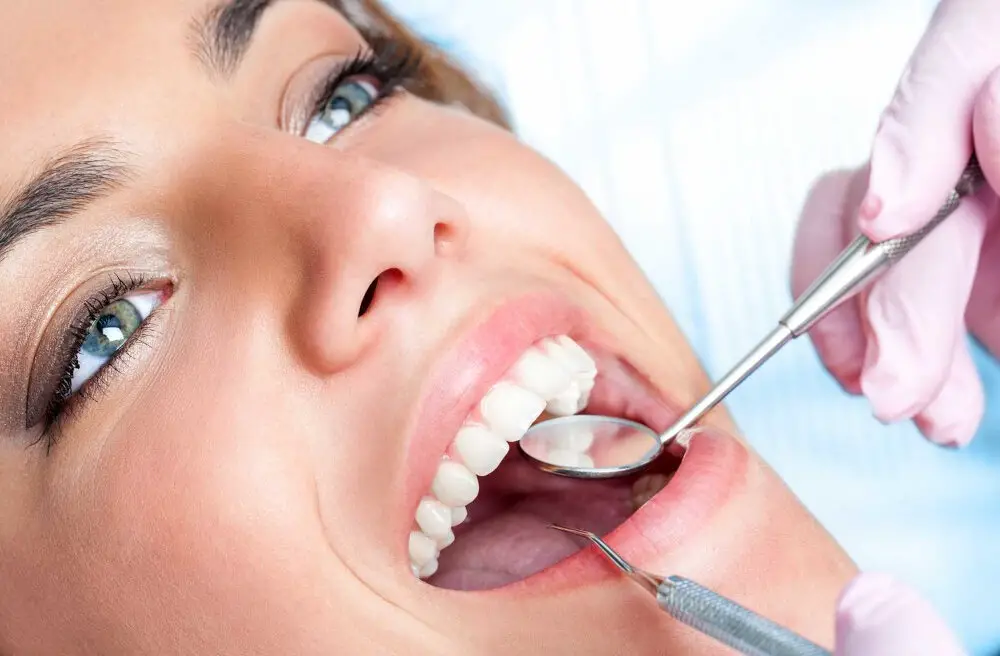
Removing tartar from toddler teeth at home is a crucial step in maintaining good oral hygiene for your child. Tartar can build up on teeth and lead to tooth decay and gum disease. Fortunately, there are easy ways to remove tartar from toddler teeth at home without having to visit a dentist. One of the easiest ways is to use a soft-bristled toothbrush and fluoride toothpaste to brush your child’s teeth twice a day. This will help to remove any surface tartar and prevent new tartar from forming. It is important to ensure that your child spits out the toothpaste and does not swallow it. Another effective way to remove tartar from toddler teeth is to use a mixture of baking soda and water. Simply mix a small amount of baking soda with water to create a paste and apply it to your child’s teeth using a soft-bristled toothbrush. Brush gently in circular motions for a few minutes before rinsing with water. Baking soda is a natural abrasive that can help to remove tartar from teeth. It is important to note that this method should only be used once a week as excessive use can damage the enamel on your child’s teeth. By following these easy steps, you can help to keep your toddler’s teeth free of tartar and ensure good oral health for your child.
Brushing with baking soda and water is a cost-effective and efficient way to remove tartar buildup on your toddler’s teeth. Baking soda is a natural abrasive that gently scrubs away plaque and tartar while neutralizing harmful acids in the mouth. When mixed with water, it creates a paste that can be easily applied to the teeth with a toothbrush. The paste works by breaking down the bonds between the tartar and tooth enamel, making it easier to remove. It’s important to note that excessive use of baking soda can damage the enamel, so it should be used in moderation and under adult supervision for toddlers. Additionally, it’s best to avoid this method if your toddler has sensitive teeth or gums.
Electric toothbrushes are a great option for parents looking to remove tartar from their toddler’s teeth at home without the need for a dentist. The bristles of an electric toothbrush vibrate at a high frequency, which enables them to clean teeth more effectively than a manual toothbrush. Children also tend to find them more fun to use, making it easier to encourage good oral hygiene habits. Additionally, many electric toothbrushes come equipped with timers to ensure that children are brushing for the recommended two minutes. Using an electric toothbrush can be a simple and effective way to keep your child’s teeth healthy and free of tartar.
Oil pulling is an ancient Ayurvedic practice that involves swishing oil in your mouth for several minutes to remove toxins and improve oral health. The most commonly used oils are coconut, sesame, and sunflower oil. The oil works as a natural cleanser and pulls out harmful bacteria from the mouth, reducing the risk of plaque buildup and tooth decay. This technique has gained popularity in recent years due to its effectiveness in removing tartar and promoting healthy gums. However, it is important to note that oil pulling should not replace regular brushing and flossing, but rather be used as a complementary practice to maintain good oral hygiene.
Eating crunchy fruits and vegetables is not only beneficial for overall health but also for maintaining good oral hygiene. Crunchy fruits and vegetables like apples, carrots, and celery can act as natural toothbrushes, gently scrubbing away any plaque or tartar buildup on teeth. Additionally, these foods stimulate the production of saliva, which helps neutralize harmful bacteria in the mouth. Incorporating crunchy fruits and vegetables into your child’s diet can provide a simple and effective way to prevent tartar buildup and promote healthy teeth and gums.
Preventing Tartar Buildup in Toddlers
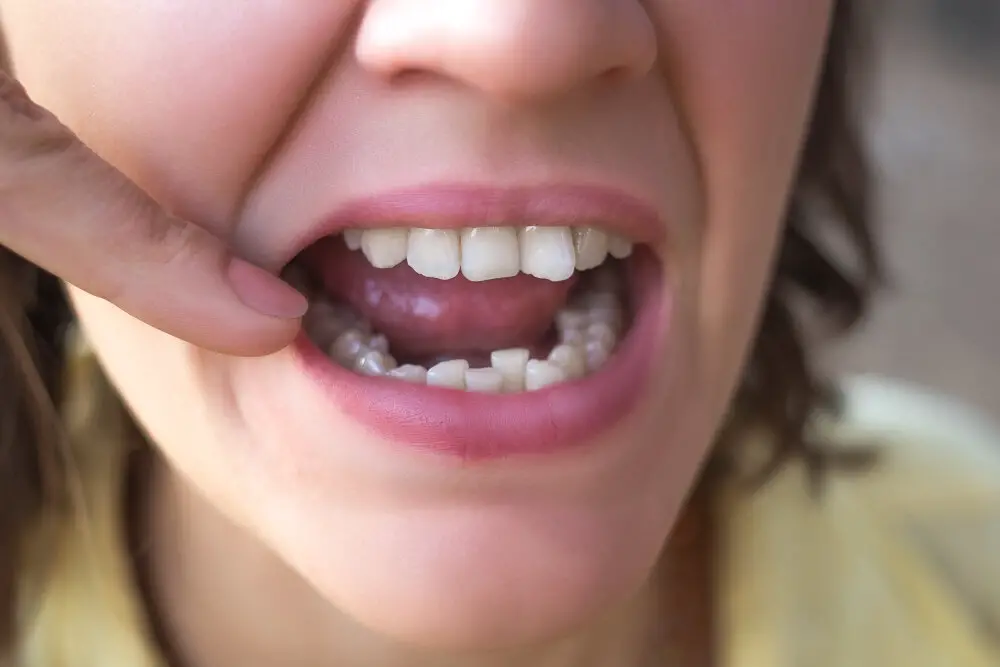
Tartar buildup on toddler’s teeth can cause a range of dental problems, including tooth decay, gum diseases, and bad breath. However, preventing tartar buildup is relatively easy with a few simple habits. Firstly, it’s essential to develop good oral hygiene habits in toddlers from a young age. Parents should brush their toddler’s teeth twice a day using a soft-bristled toothbrush and fluoride toothpaste. It’s essential to supervise children while they brush their teeth to ensure they do not swallow toothpaste or injure their gums. Another effective way to prevent tartar buildup in toddlers is to limit their intake of sugary and starchy foods. These foods can cause bacteria to thrive in the mouth and create conditions for tartar to form. Instead, parents should encourage toddlers to eat a balanced diet that includes plenty of fruits, vegetables, and whole grains. Additionally, parents can introduce their toddlers to dental flossing as early as possible. Flossing can remove food particles stuck between the teeth and prevent tartar from forming. By developing these healthy habits, parents can prevent tartar buildup in toddlers and promote healthy dental hygiene for life. In conclusion, preventing tartar buildup in toddlers is crucial for maintaining good oral health. Parents should prioritize their child’s dental hygiene by developing healthy habits, such as brushing teeth twice a day, limiting sugary foods, and introducing dental flossing. By doing so, parents can help their toddlers maintain healthy teeth and gums, prevent dental problems, and promote good oral hygiene habits for life.
Regular dental checkups are essential for maintaining good oral health in both children and adults. During a checkup, a dentist can detect any potential problems such as tartar buildup or cavities and provide necessary treatment before the issue worsens. In addition, a dental cleaning performed by a professional removes tartar and plaque that may be difficult to remove at home. Parents should schedule regular dental checkups for their toddlers to ensure their teeth are healthy and to prevent future dental problems. By prioritizing regular dental checkups, parents can help their children maintain healthy teeth and gums for a lifetime.
Limiting sugary foods and drinks is crucial to maintain good oral health in toddlers. Sugar is a primary cause of tooth decay, which can lead to tartar buildup. Sugary drinks such as soda, fruit juices, and sports drinks are especially harmful as they often contain high amounts of sugar and acids that erode tooth enamel. Instead, encourage your toddler to drink water and milk, which are better for their teeth. If your toddler does consume sugary foods or drinks, make sure they brush their teeth or rinse their mouth with water afterward to remove any residue. By limiting sugary foods and drinks, you can help prevent tartar buildup and promote healthy teeth and gums in your toddler.
Encouraging healthy dental hygiene habits is crucial for toddlers to maintain healthy teeth and gums. Parents should promote tooth brushing twice a day with a fluoride toothpaste, flossing, and visiting the dentist regularly. They can also encourage their children to eat a well-balanced diet and limit sugary drinks and snacks. Additionally, parents can make dental care fun by turning it into a game or singing a song during brushing time. By instilling good dental habits early on, parents can help their children avoid tartar buildup and other dental issues, leading to a lifetime of healthy smiles.
Maintaining good dental hygiene is crucial for toddlers as it helps in keeping their teeth and gums healthy. Poor dental hygiene can lead to tooth decay, gum disease, and other dental problems that can affect a child’s overall health. Brushing their teeth twice a day, flossing regularly, and limiting sugary snacks and drinks are some of the ways to prevent tartar buildup and promote good dental hygiene. Parents must teach their toddlers the importance of dental hygiene from an early age to instill good habits that will last a lifetime. By following these simple tips, parents can ensure that their toddlers have healthy teeth and a beautiful smile.
Maintaining good oral hygiene in toddlers is essential for healthy teeth and gums, but tartar buildup can be a challenging issue to tackle. However, with the above-mentioned methods, removing tartar and preventing future buildup is possible without the need for a dentist. By using natural remedies like baking soda, salt, and lemon juice, parents can easily clean their toddler’s teeth and gums at home. Moreover, incorporating healthy habits such as regular brushing, flossing, and limiting sugary foods and drinks can help prevent future tartar buildup. So, don’t hesitate, give these easy and effective methods a try, and say goodbye to tartar for good!
Conclusion

In conclusion, taking care of your toddler’s dental health is crucial and preventing tartar buildup is a significant aspect of it. By incorporating simple and easy-to-follow practices into your child’s oral hygiene routine, you can remove tartar from their teeth without having to visit a dentist. From brushing and flossing regularly to using natural remedies like baking soda or apple cider vinegar, there are numerous ways to tackle tartar buildup at home. It is important to remember that maintaining a healthy diet and reducing sugary snacks and drinks can also prevent the formation of tartar. With consistent effort and dedication, you can keep your toddler’s teeth healthy and free from tartar, ensuring their overall wellbeing.





